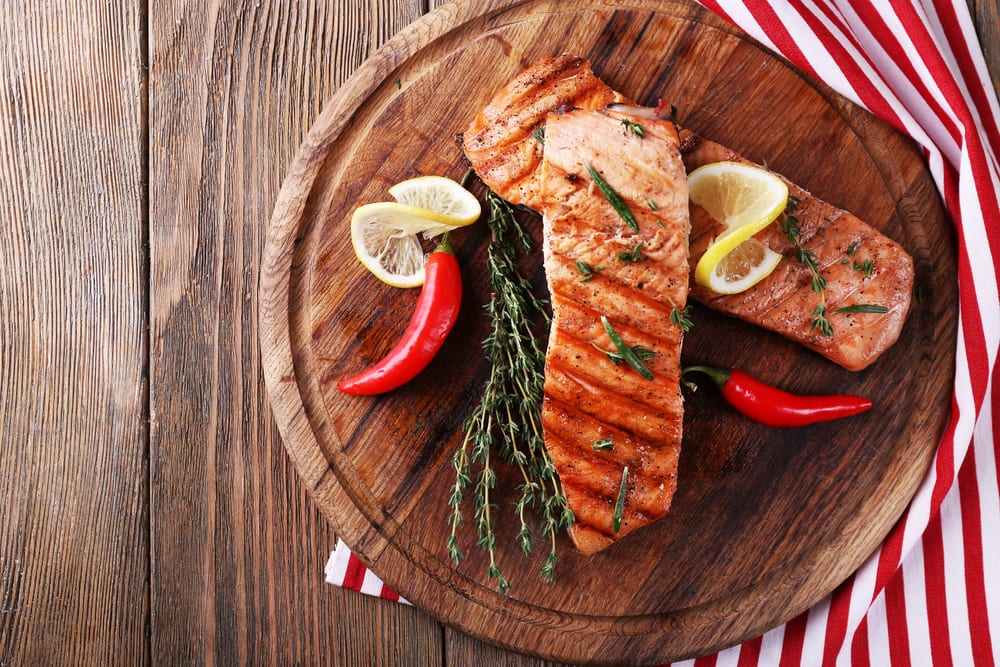There’s a difference between eating for health and eating for fat loss. Eating “healthy” won’t always help you reach your fat loss goals. Likewise, eating to lose fat isn’t always healthy. You can eat entirely 100% healthy all day every day and still become obese if you’re consuming excess calories. And even though everything you put into your body is “healthy” you would be just as unhealthy as someone who became obese by eating “junk” thanks to the unhealthy body composition you both have. I’m not saying that eating healthy, nutrient dense foods is of no importance. It’s just far from the only thing that matters.
Some of the healthiest foods there are also some of the most calorie dense foods. They may help you get plenty of nutrients but they also may shoot your calorie intake up to way over what it needs to be. Many people are often shocked to learn that their “healthy” foods they thought were helping them lose weight may be the biggest reason that they are failing to reach their weight loss goals.
In this post I want to point out some of the biggest culprits in this epidemic and help people start making smarter choices with their diet and have a better chance of effectively managing their calorie intake to lose fat. While these foods are definitely “healthy” and are certainly fine to include in your diet in moderate amounts if you enjoy them, they can easily cause many people to overconsume calories.
1. Coconut Oil
Coconut Oil has lately been deemed to pretty much do everything besides cure cancer. People are putting it on everything and it’s became especially popular as part of a bulletproof coffee concoction. Just the other day I saw a friends post on Facebook stating that they had recently switched their sugar in their coffee out for coconut oil. Immediately, the comments started flooding in. People were saying things like “great tip”, “have to try that”, or “never thought of that”. If these people were making that switch for the nutrient benefits of consuming coconut oil over sugar and were aware they would need to manage their calorie intake to account for the change, then I’m all for that. But I’m pretty sure that wasn’t the case here. They were most likely all going to make this switch to help them lose weight. But one tablespoon of sugar, which would be a pretty extreme amount for even the biggest sugar addict is only 45 calories. One tablespoon of coconut oil however, which is at least the amount most people would use in their coffee, is 120 calories. The thing that makes coconut oil so bad is that it’s oil. Just like any other oil, it’s an extremely dense source of calories, thanks to being an unsaturated fat, that provides little to no satiation. Like all oils just one tablespoon adds over 100 calories to your diet. If you need and want to use a little to cook with it shouldn’t be much of a problem. But cooking with heaping spoonfuls and putting the stuff in your coffee a few times per day could easily add up to an extra 500-1,000 calories in your diet.
2. Nut Butter
 As much as I love nut butter, I pretty much avoid it when my goals are fat loss. Healthy? Absolutely. Delicious? You bet. But again, it’s a very calorie dense and easy to consume source of fat. But many people again just assume since nut butters are healthy, and also since they’re often touted as a good source of protein, that they’re good to include in a fat loss diet. Using small to moderate amounts for flavor is fine but building meals and snacks around nut butters is probably not a good idea.
As much as I love nut butter, I pretty much avoid it when my goals are fat loss. Healthy? Absolutely. Delicious? You bet. But again, it’s a very calorie dense and easy to consume source of fat. But many people again just assume since nut butters are healthy, and also since they’re often touted as a good source of protein, that they’re good to include in a fat loss diet. Using small to moderate amounts for flavor is fine but building meals and snacks around nut butters is probably not a good idea.
3. Granola
There may be no bigger pretend health food than granola. Certainly healthy, but one of the most calorie dense carb sources you will find. Just a simple ¼ cup of some varieties will net you over 200 calories! When looking to limit your calories and lose fat you may just want to stick to cereal and oatmeal.
4. Salmon
You know why bears eat Salmon? Because it’s a very dense source of calories to help them store all that fat they need to store up for their hibernation. It’s incredibly nutrient dense and contains a bevy of heart healthy omega-3s but also loads of calories. When your goals are fat loss you should be focusing more on leaner meat and fish instead and simply supplementing with a little fish oil each day to meet your needs without overdoing it.
5. Salads
Sure you CAN make a salad extremely nutrient dense and low in calories. But most salads that people get at restaurants and fast food places are absolutely loaded with calories. They often contain more calories than many burgers, sandwiches, and fried foods on the menu. That’s because most restaurant salads contain cheese, fruit, nuts, seeds, and dressings which are all extremely calorie dense foods. Sure, they provide plenty of nutritional value but often also provide far more calories than most people can afford to eat.
6. Protein Shakes

7. Turkey Burgers
Often thought of as the better option compared to normal beef burgers, but many times that’s not the case. Unless you get the lean varieties, turkey burgers are no lower in calories than beef burgers. And at most restaurants and fast food joints their turkey burgers are definitely not the lean variety and just as high calorie as any other burger on the menu. You may think you’re going lower calorie by choosing the turkey burger but in most cases you’re not.
8. Sweet Potato Fries
Another common “healthy” swap people might make is to choose sweet potato fries over the traditional ones. But as long as their still fried, it wouldn’t really help any from a calorie standpoint to help you lose fat and in many cases the sweet potato fries can be even higher in calories.
If you’re trying to limit your calories and lose some fat don’t be fooled by these fake healthy foods. Yes they are all “healthy” in that they contain vital nutrients and they can all certainly be included in any diet in moderate amounts. However, they also are quite calorie dense and can easily and quickly lead to overconsumption if included too often. Don’t simply think that consuming these “healthy” foods will help you lose fat without paying attention to how many calories you’re consuming.
 Dyan Willet: I’m just a regular guy who loves to lift heavy weights and eat LOTS of nutritious. I’m a graduate of North Carolina State University, fitness blogger, training and nutrition coach, and also a poultry farmer.
Dyan Willet: I’m just a regular guy who loves to lift heavy weights and eat LOTS of nutritious. I’m a graduate of North Carolina State University, fitness blogger, training and nutrition coach, and also a poultry farmer.
You can contact him at –
www.DylanWillettFitness.com
www.facebook.com/DylanWillettFitness
Instagram: @DylanWillettFitess








The point this article misses about coconut oil vs. sugar is CARBS. Although a high-fat diet is hard to maintain, it is FAR healthier than a regular carb diet. I’ve done it and lost a lost of weight and every single vital was better on high-fat. The trouble is that it gets boring and carbs are addictive. Otherwise, if you can maintain it, you will live longer, be thinner and not live with the glucose peaks and valleys of carbs.
Ted, I can see your point. A high fat diet is certainly healthier than a SUGAR laden diet. But far healthier than a regular carb diet composed of high fiber, whole food, low sugar carbs…not so much. The point I’m making here about coconut oil and other high-fat “healthy” foods on this list are that they are far less filling and make it very easy to overconsume calories because they are still very calorie dense. The glucose peaks and valleys don’t come from consuming those carbs, they come from consuming sugar. If you lost weight and improved your vitals, that was more related to the fact that you maintained a calorie deficit and lost weight and reduced your body fat which also lead to you becoming healthier overall due to your improved body composition. Thanks for the comment!